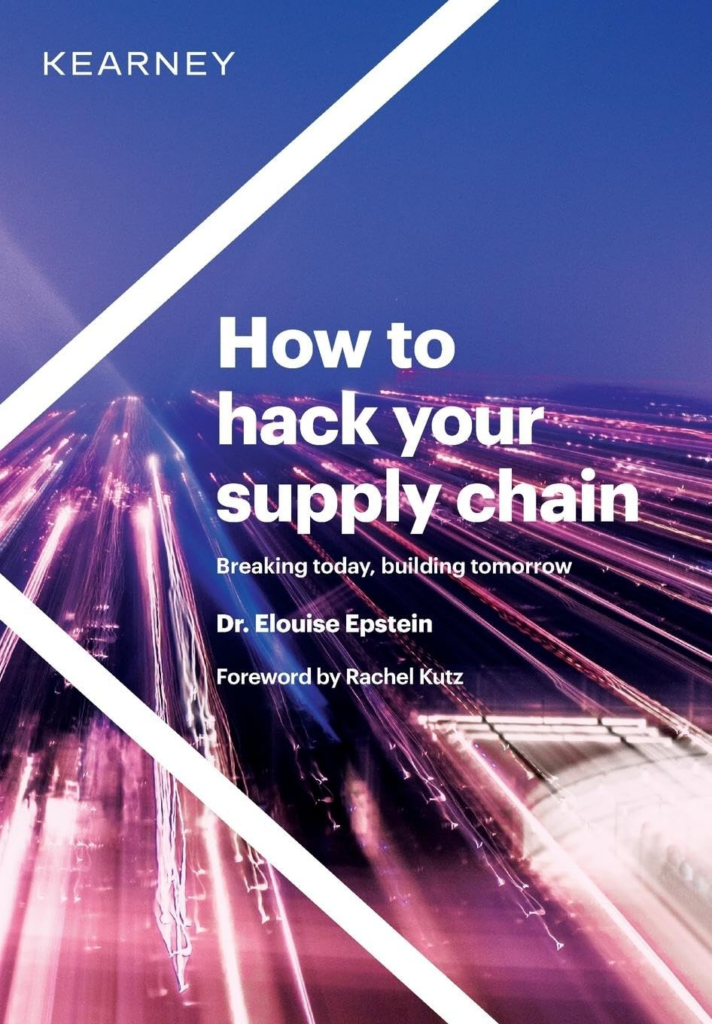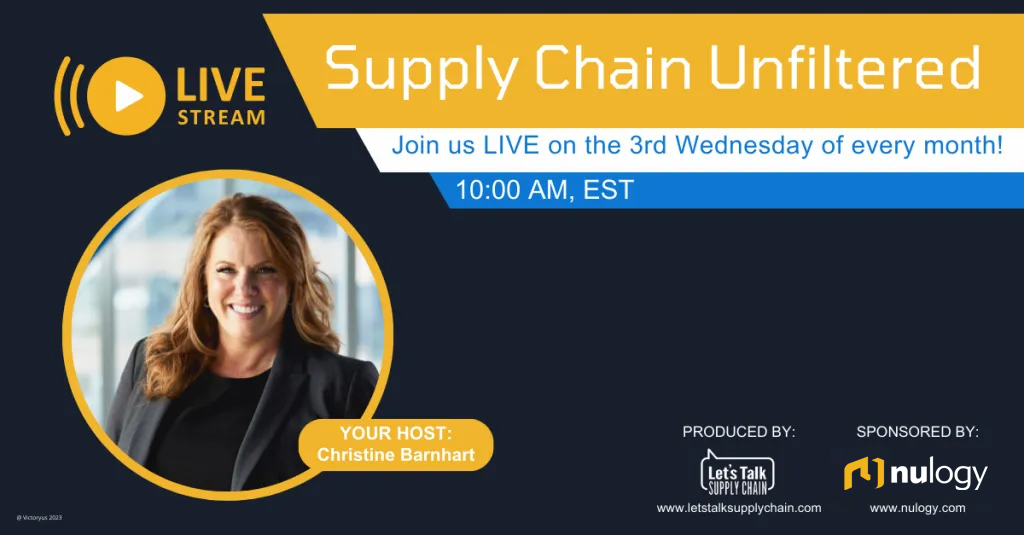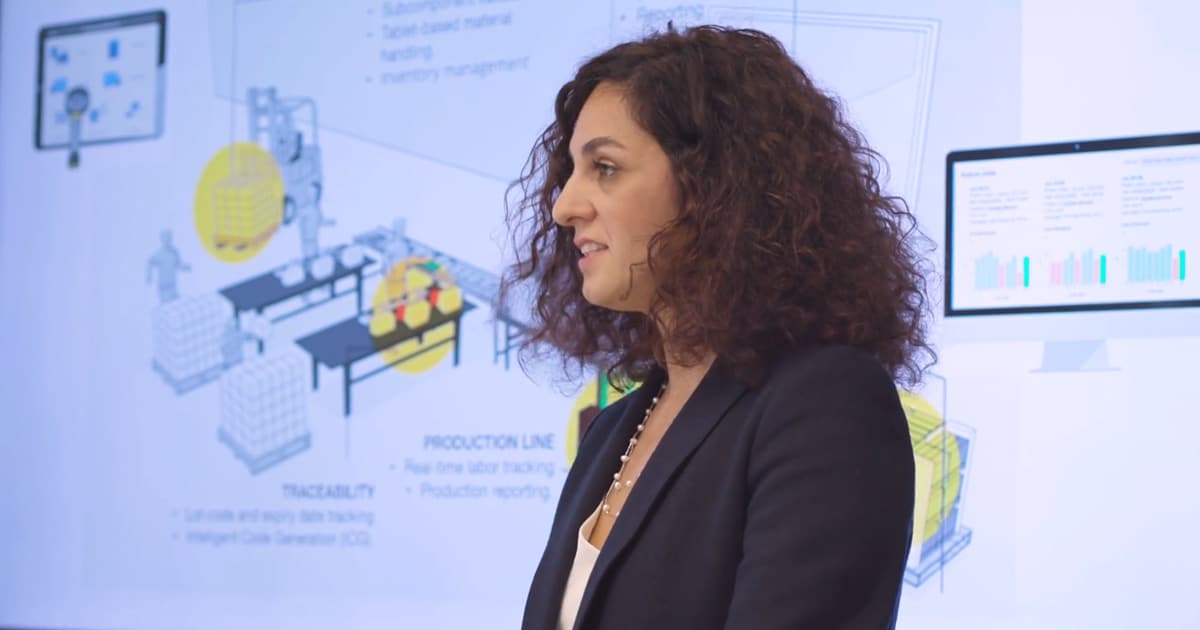In the latest episode of Supply Chain Unfiltered, our monthly live series produced by Let’s Talk Supply Chain, I took a deep dive into innovative strategies to optimize and improve various aspects of your supply chain alongside none other than Dr. Elouise Epstein.
A distinguished thought leader in procurement and supply chain management at Kearney, Dr. Epstein shared some of her groundbreaking insights from her new book, “How to Hack Your Supply Chain: Breaking Today, Building Tomorrow,” that I know you’ll find fascinating. Let’s dive right in.
The Shift from Traditional Enterprise Systems to Agile, Multi-Enterprise Networks
There’s no denying that the supply chain industry looks a lot different today than it did several years ago. The pandemic exposed existing vulnerabilities that changed the way many companies do business and, although conditions have eased, our landscape continues to evolve. Dr. Epstein shared three unfolding trends to watch:
- Change is the only constant in modern supply chains and disruptions will continue to pile up indefinitely. I think we can all agree that, when looking back at 2018 and 2019, those years felt like an era of calm that we simply won’t return to.
- Digital solutions and artificial intelligence (AI) are evolving at lightning speed. “Through the pandemic, digital really flexed and sling-shotted us towards [more rapid] adoption. So, [we’re seeing] a lot more digital competency, a lot more digital tooling, a lot more digital sophistication and leadership,” shared Dr. Epstein.
- External supply chain partners are more important than ever before and play a direct role in quality. In the information age of the 90s, we extended our supply chains across the world, chasing low costs, and building shopping and logistics infrastructure to support these initiatives. The pandemic, however, revealed that our supply chains were brittle and in need of improvement.
My ultimate takeaway is that disruption is the new normal in supply chains and that isn’t going to change any time soon—if ever. We need to find ways to work more effectively across the external supply chain and that means taking a multi-enterprise approach that fosters agility and longevity.
Evolving Beyond Monolithic ERPs
Are global supply chains dependent on monolithic enterprise resource planning (ERP) systems? And, if so, are they sacrificing the value of purpose-built solutions?
“We’re in a post-ERP world and we just haven’t accepted it,” Dr. Epstein laughed. She pointed out that the ERPs of the past were created and designed primarily for use within the “four walls” of a manufacturing operation that, in today’s age, are becoming less and less common with brand manufacturers’ increasing reliance on third-party partners and vendors. The traditional ERP was never designed for our modern-day usage of encompassing all aspects of supply chain management, and its underlying technology simply falls short. So, what does that mean for our industry?
While Dr. Epstein didn’t go as far as to suggest ripping out your ERP, she does recommend going deeper into the infrastructure level and leveraging point solutions that help connect third parties, exchange clean data, and maximize agility, security, and ESG standards. Over time, she predicts that leveraging these other solutions will likely shrink the use of traditional ERPs.
Dr. Epstein’s Advice to Supply Chain Leaders
“Don’t sit back and let technology come to you,” Dr. Epstein advised. Be proactive with the current exponential growth of the digital age, even if you’re just learning as you go. She continued, “Meet the founder [of a] startup solution like Nulogy and just learn. Just learn.” Once you hit that sweet spot of meaningful digital transformation, you can’t unsee it and it changes your perspective forever.
I couldn’t agree more with her advice. The act of releasing yourself from inertia and propelling forward creates an appetite for change, and that’s powerful.
However, it’s important to note that up to 84% of digital transformations result in failure. Why is that and what can be done to ensure your digital transformation initiative is a success? Dr. Epstein chalks much of the problem up to three potential pitfalls:
- Creating a complex ecosystem for the end user that creates a poor user experience
- Implementing digital transformations that are essentially ERP upgrades in disguise
- To discover Dr. Epstein’s third reason, tune into the full episode now.
Thank you Dr. Epstein for joining me on Supply Chain Unfiltered and sharing your insights into the supply chain landscape. Keeping up, much less getting ahead, amid the rate of rapid change in our industry is challenging to say the least and Dr. Epstein’s new book, “How to Hack Your Supply Chain: Breaking Today, Building Tomorrow,” is definitely one of my top reads for 2024.

You can find your own copy on Amazon and, as always, I hope you’ll connect with both Dr. Epstein and me on LinkedIn to continue building the supply chain of tomorrow, today.
I also invite you to keep a pulse on our evolving industry by registering now to join me for the next episode of “Supply Chain Unfiltered” featuring special guest Douglas Kent, Executive Vice President of Corporate & Strategic Alliances at the Association for Supply Chain Management (ASCM). Hope to see you there!








